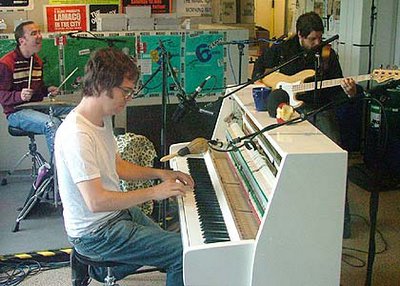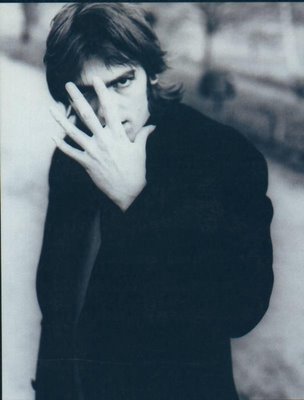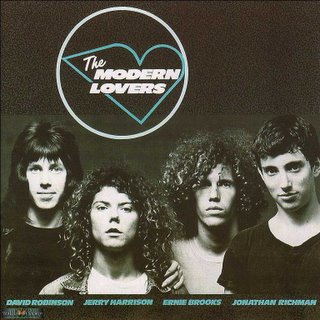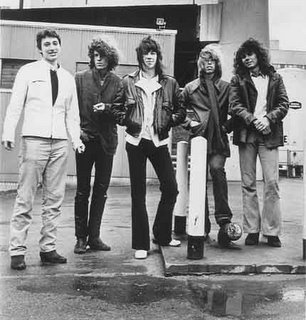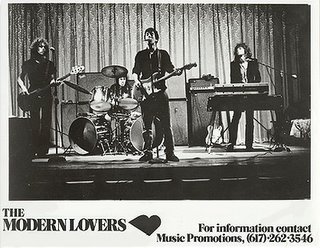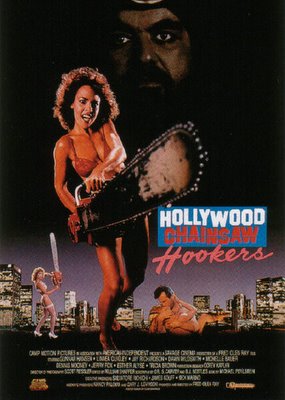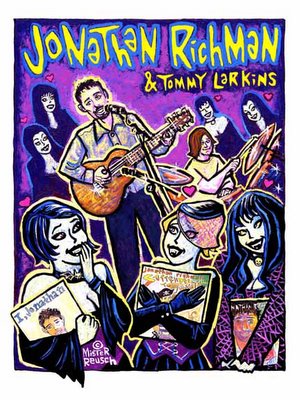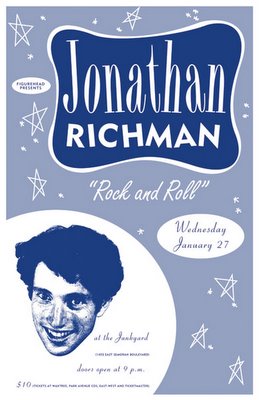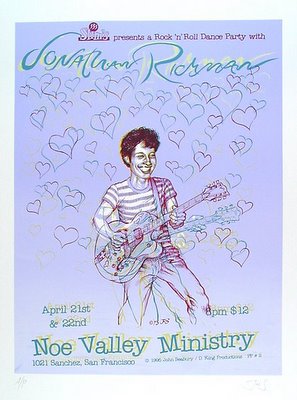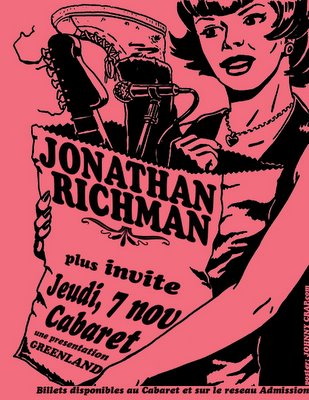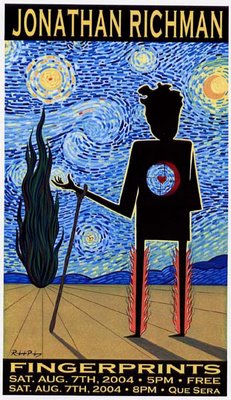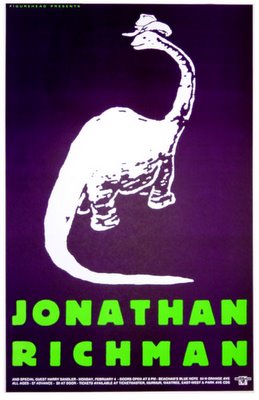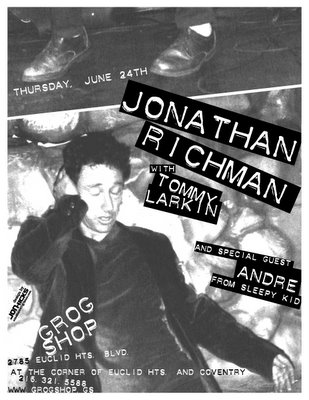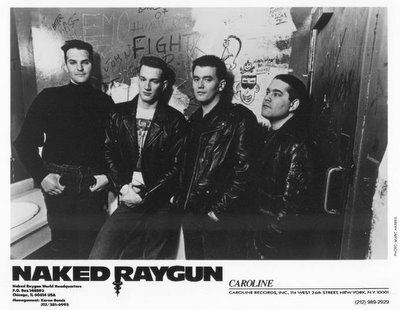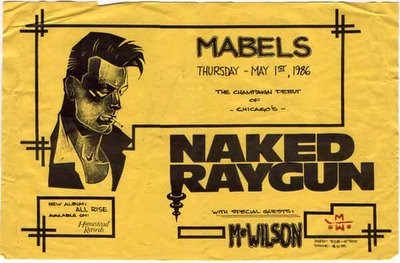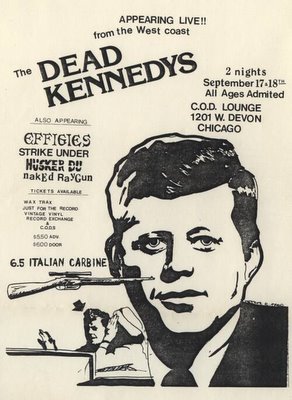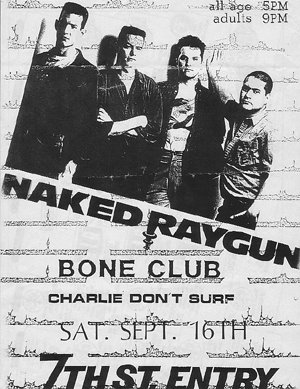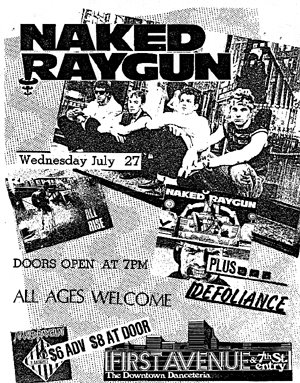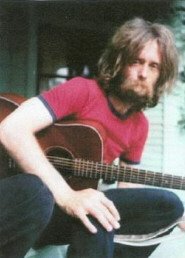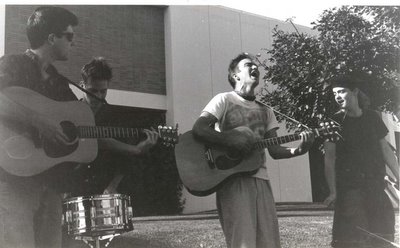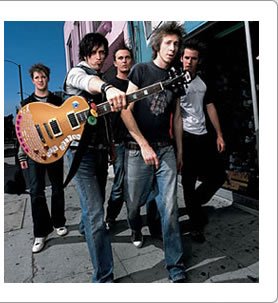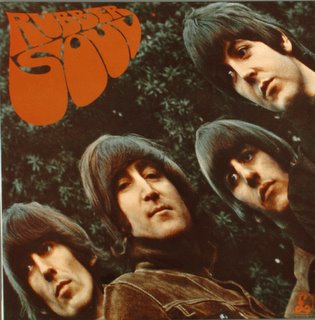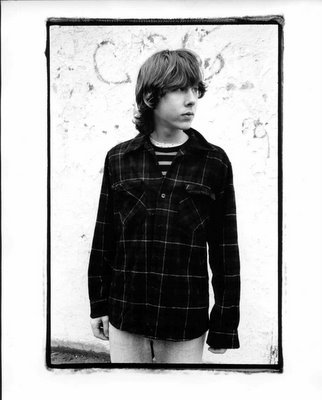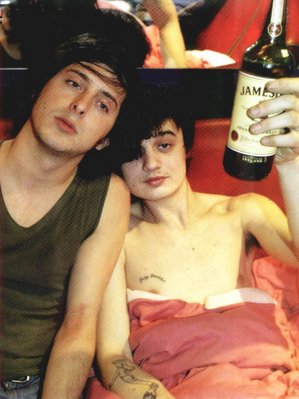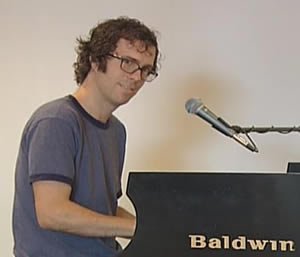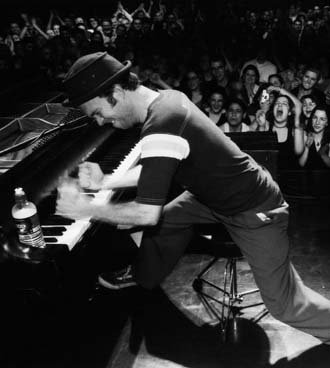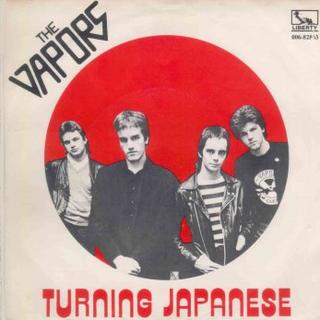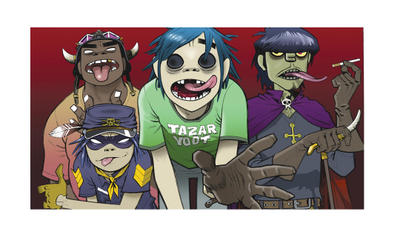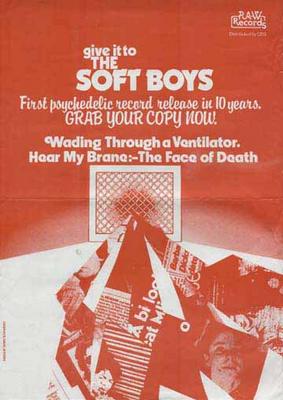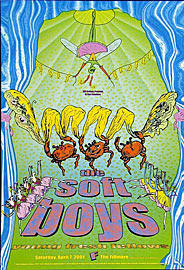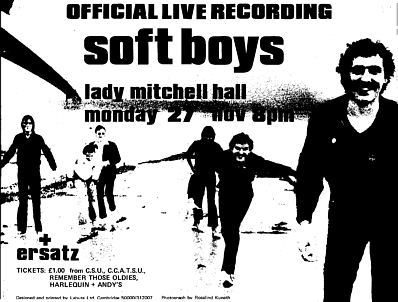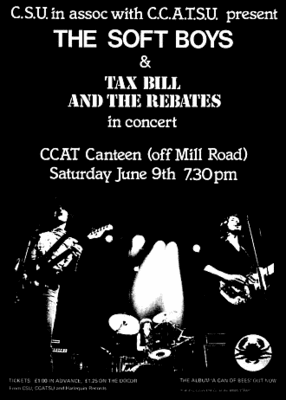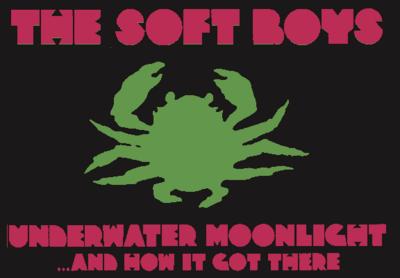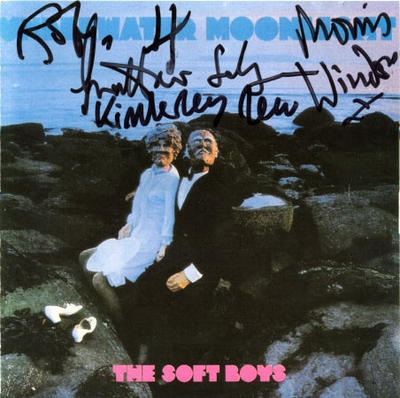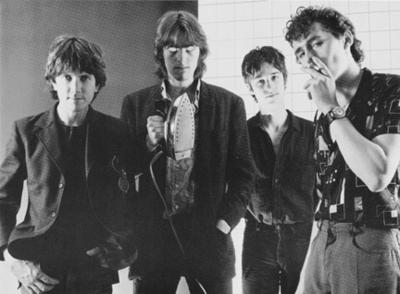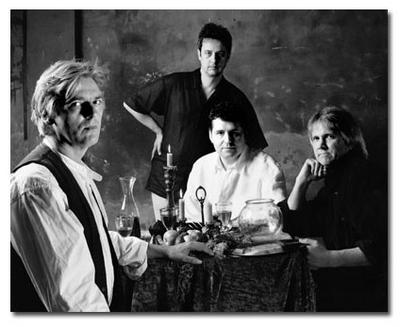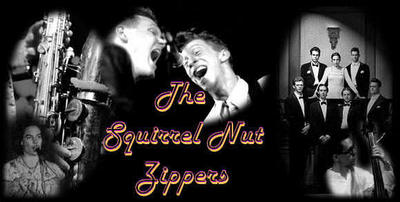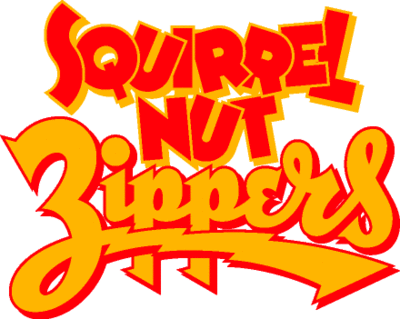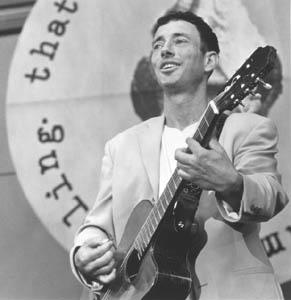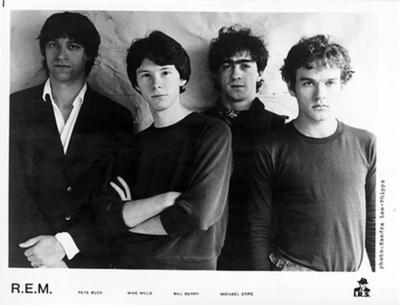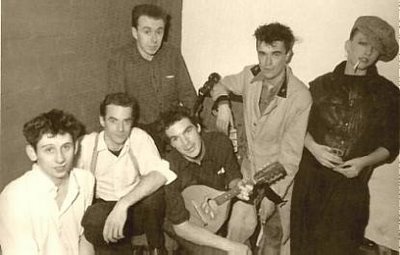
http://www.trouserpress.com
POGUES Red Roses for Me (UK Stiff) 1984 (Stiff/Enigma) 1986
Rum Sodomy & the Lash (Stiff/MCA) 1985
Poguetry in Motion EP (Stiff/MCA) 1986 (UK WEA) 1991
St. Patrick's Night EP (UK Pogue Mahone) 1988
If I Should Fall From Grace With God (Island) 1988
Peace and Love (Island) 1989
Misty Morning, Albert Bridge EP (UK WEA) 1989
Yeah Yeah Yeah Yeah EP (Island) 1990
Hell's Ditch (Island) 1990
Essential Pogues (Island) 1991
The Best of the Pogues (UK Warner Music) 1991
The Rest of the Best (UK Warner Music) 1992
Waiting for Herb (Chameleon/Elektra) 1993 (Elektra) 1993
Pogue Mahone (UK Warner Music) 1995 (Mesa) 1996
The Very Best of the Pogues (UK Warner Music) 2001
NICK CAVE & SHANE MACGOWAN"What a Wonderful World" (Mute/Elektra) 1992
SHANE MACGOWAN AND THE POPESThe Church of the Holy Spook EP (UK ZTT) 1994
That Woman's Got Me Drinking EP (UK ZTT) 1994
The Snake (UK ZTT) 1994 + 1995 (ZTT/Warner Bros.) 1995
Christmas Party EP (UK ZTT) 1996
The Crock of Gold (UK ZTT) 1997
Across the Atlantic (UK Eagle Rock) 2001
POPESAre You Looking at Me? EP (UK Scarlet) 1998
Holloway Boulevard (UK Scarlet) 1999 (Snapper Music) 2000
VARIOUS ARTISTSStraight to Hell (Hell/Enigma) 1987
NIPS 'N' NIPPLE ERECTORSBops, Babes, Booze & Bovver (UK Big Beat) 1987
As the Anglo-Irish octet's singer, colorful public persona and primary songwriter, Shane MacGowan was always the man to see about the Pogues, from the band's early days as punk's idea of an Irish folk group through its adventurous maturity as lusty world music dilettantes. But alcohol and other bad habits made MacGowan increasingly erratic, and for a while the London-based band's figurehead threatened to plow its prow into a figurative, if not a literal, tree.
The Pogues (originally known as Pogue Mahone, which is Gaelic for "kiss my ass") managed to make five albums — none of which are bad, and two of which (If I Should Fall from Grace With God and Peace and Love) are extraordinary examples of literate traditionalism feeding contemporary invention — before taking the gutsy cure-or-die (for both bodies) step of chucking MacGowan out in the fall of 1991.
As a young raver, MacGowan was in the late if unlamented Nipple Erectors (later the Nips), a frisky Ted-style punkabilly-cum-beat quartet memorialized a decade after the fact in the eight-song Bops, Babes, Booze & Bovver retrospective; guitarist Philip Chevron led Dublin's estimable Radiators from Space, also in the late '70s.
The Pogues' original repertoire mixed traditional Irish, English and Australian folk songs with MacGowan's stylistically antiquated originals. The first two albums are exploratory, but both have their fine moments. Concertina, banjo, pipes, guitar, bass, minimal drums, mandolin and the like in the hands of post-rock rebels make for an intriguing blend of old-fashioned and newfangled. Recorded as a drape-jacketed six-piece, Red Roses for Me (the American cassette of which adds three cuts) mixes traditional balladry ("Poor Paddy," "Greenland Whale Fisheries") with Shane's derivative but promising creations ("Boys From the County Hell," "Dark Streets of London").
Red Roses' rudimentary acoustic instrumentation gave way to relative sophistication on the more varied Rum Sodomy & the Lash (produced by Elvis Costello), which evidences growing stylistic ambition as well. MacGowan, a besotted Tom Waits-like figure with an obvious Brendan Behan/James Joyce jones, shows increased confidence and talent as a songwriter on numbers like "The Old Main Drag" and "A Pair of Brown Eyes," notable examples of his gritty, realistic tales of life's urban downside.
Miles better than either of those, however, is Poguetry in Motion: an EP of three new MacGowan songs and a reel. Mixing zydeco with Gaelic soul, "London Girl" is a rousing singalong; "A Rainy Night in Soho" plays a hauntingly beautiful Van Morrison-like waltz on piano, with tasteful horns and strings; "The Body of an American" is a drinking song that most closely resembles the Pogues' primal busker sound, with uilleann pipes, martial drums and jolly tin whistle.
Along with Costello and Joe Strummer, the Pogues fell in with director Alex Cox, contributing a pair of tracks to Sid & Nancy, appearing in the motley Straight to Hell and providing the bulk of its soundtrack. Surrounded by contributions by the (Declan) MacManus Gang, Strummer and others, the Pogues offer atmospheric Latinisms like "Rabinga" and Ennio Morricone's "The Good, the Bad and the Ugly," as well as more European creations like "If I Should Fall From Grace With God" (a preview of their next album) and the traditional "Danny Boy," recorded as a reunion with ex-bassist Cait O'Riordan.
If I Should Fall From Grace With God is an exciting, strong album that opens new vistas for the Pogues. Almost all of the material is by the band; amidst winningly unreconstructed folk designs ("The Broad Majestic Shannon," "Medley," the title tune) is a jazz/swing instrumental ("Metropolis") and the oddly accented "Turkish Song of the Damned." But the record's easy standout is another example of the melancholic urban balladeering introduced on Poguetry in Motion: "Fairytale of New York," a fragile piano-and-strings lullaby with guest vocals by Kirsty MacColl, wife of the album's producer, Steve Lillywhite, and daughter of folk titan Ewan MacColl, whose songs the Pogues have covered.
What were merely digressions on If I Should Fall form the stylistic basis of Peace and Love, an amazing album (also produced by Lillywhite) that redefines the Pogues and demonstrates the enormous breadth of talent the eight men possess. Kicking off with a blistering big-band instrumental ("Gridlock") and then careening joyously into one of MacGowan's finest folk-rock creations ("White City"), the record is a marvel of rich playing, resonant emotions, sturdy melodies and low tales. In this varied effort, mandolinist Terry Woods offers a fiery acoustic calumny against Oliver Cromwell in "Young Ned of the Hill"; Chevron contributes the rollicking New Orleans-accented "Blue Heaven"; banjo-player Jem Finer chips in with the dramatic "Night Train to Lorca" and a wistful waltz ("Misty Morning, Albert Bridge"). Meanwhile, MacGowan tops things off with "Boat Train," an engrossing recollection of a drunken voyage, the American-conscious "Cotton Fields" and "London You're a Lady," ending the album in an orchestral flourish. (The Misty Morning EP offers three album tracks — one in a surprising dub mix — and Finer's "Train of Love.")
Although the excellent stomping and lusty R&B single "Yeah Yeah Yeah Yeah" was released in 1988, a 12-inch EP built around it — adding a rambunctious banjofied rendition of "Honky Tonk Woman" and a pair of Irish folk songs (one a Pogues original) performed with the Dubliners (the two bands had previously teamed up on a 1987 single) — suddenly appeared in 1990.
Joe Strummer produced Hell's Ditch, a casually organized musical voyage that spends far too much of its time in Spain and the Mediterranean. While keeping the music close to home, MacGowan drops eight place names in the first three songs (two of which — "The Ghost of a Smile" and "The Sunnyside of the Street" — are positively wonderful examples of Poguetry) but that's only an orientation session. Once the Pogue ship sets sail, he turns cinematic, spinning spaghetti western yarns ("Hell's Ditch," "Lorca's Novena") with sinuous Middle Eastern accents. Before finishing (with an African-styled chant no less), the Pogues try out cocktail jazz (complete with piano and harp), insert what sounds like a Semitic dance melody into Finer's "The Wake of the Medusa" and manage a convincing early-'70s Dylan impression in "5 Green Queens & Jean." Track by track, there's some fine stuff here, but Strummer's casual production and the album's maddening stylistic hopscotch make it, overall, a frustrating exercise.
MacGowan was then banished from the group and replaced for road work by Strummer. (For his part, MacGowan claimed to have left under his own power, dubiously complaining the group had grown too progressive for his taste.) While the Pogues worked out their next move, the band's label bought some woodshedding time by releasing two British compilations and the American Essential Pogues, a fair dozen tracks from the preceding three albums augmented by the long version of "Yeah, Yeah, Yeah, Yeah, Yeah" and a cover of the Rolling Stones' "Honky Tonk Women." Both of those songs are also on the not-entirely bottom-scraping Rest of the Best, along with fourteen more, from the first album's "Dark Streets of London" to the high points of Hell's Ditch, "The Sunnyside of the Street" and "Summer in Siam." Essential has some overlap with the more consistent fourteen-song Best of the Pogues, but not as much as might be imagined: "Fairytale of New York" (which features Kirsty MacColl), "Misty Morning, Albert Bridge" and a few others.
As MacGowan sloped around the perimeter of launching a solo career, managing little more than a duet on "What a Wonderful World" with Nick Cave (the three-song CD single also packs Nick's version of Shane's "Rainy Night in Soho" and his take on Cave's "Lucy"), the courageous but chastened Pogues returned to action. Waiting for Herb, a modest back-to-the-roots record that could have been much worse, unveils tin whistler and occasional vocalist Spider Stacy as the band's new singer. (As if to reinforce the choice's inexorable logic, bazouki/concertina/cittern/mandolin player Terry Woods wraps his ungainly voice around "Haunting" early on. 'Nuff sung.) Had MacGowan still been at the helm, the album's diffident stylistic retrenchment and lyrical tepidity would have been seen as a creative collapse; without him, Waiting for Herb introduces a corporeal ghost of the band that does its memory no serious harm. After Stacy's "Tuesday Morning" and accordionist James Fearnley's "Drunken Boat," guitarist/banjo player Jem Finer contributes the record's best songs ("Smell of Petroleum," "Once Upon a Time," the collaborative "Sitting on Top of the World"), but nothing here has the fervid imagination or riveting poetic imagery of MacGowan's finest worksongs.
Pogue Mahone, the second post-Shane album, is a bit more troublesome. The septet's membership has even less in common with the old band: Stacy, Finer and the rhythm section of Andrew Ranken and Darryl Hunt (who replaced founding bassist Cait O'Riordan) are the only holdovers from Herb, joined by newcomers in the slots left by James Fearnley (off to join the Low & Sweet Orchestra), Terry Woods (a solo career) and Phil Chevron (illness). A resultant shortage of songs that are more than workably agreeable and a complete lack of edge in their performances leaves the harmless album sounding like the work of a skilled and spirited but bog-ordinary Irish pub band (never more so than in the fine but inexplicable cover of Bob Dylan's "When the Ship Comes In"). That makes the album title seem doubly unwarranted: this one goes down without a fight or a sneer.
Meanwhile, the man who was in no shape to make a Pogues record managed to pull his own out of a hat as if by wizardry in 1994. Decorated with depressing photos of the dental disaster in various poses of appalling dissipation (including one where the flame of his lighter hovers a half-inch to the left of the cigarette he's attempting to light), The Snake introduces the enfeebled star's ironically named sextet, a rock-oriented outfit that can also mix up a convincing Gaelic-flavored bustle. The Pogues never invoked the memory of Mott the Hoople (with a nod to the Clash) the way this lot does on "Victoria," but on traditional ballads like "Roddy McCorley," "Nancy Whiskey" and "The Rising of the Moon," the Popes reclaim enough of the older band's sound for the transition to hardly matter. (Of course, the lengthy list of guests, which runs from Johnny Depp to members of the Pogues and Dubliners, might have something to do with the Popes' evident stylistic breadth.) Anything The Snake gives up in the way of subtlety or stylistic invention it more than gets back in the consistent excellence of MacGowan's songwriting, which is as sweeping, foul and fully realized as anything in the Pogues catalogue. The profanity of "Donegal Express" sounds as natural as breathing, but so does the cinematic fable of "A Mexican Funeral in Paris," which MacGowan growls against crisp horn blares. "That Woman's Got Me Drinking" is a careening doozy on an all too familiar theme, but the touchingly sincere "The Song With No Name" is a gorgeous pledge of romantic troth and "Haunted" is a campy but seductive Sonny and Cher duet with Sinéad O'Connor. The Snake is a shockingly good record from a cat with nine lives.
MacGowan continues to lurch along productively, but the Pogues called it quits after Pogue Mahone. In December 2001, Shane joined Jem Finer, Darryl Hunt, Phil Chevron, Terry Woods, Spider Stacey, Andrew Rankin and James Fearnley for a Pogues reunion tour, which amounted to three shows in London, three more in England and one each in Dublin and Glasgow.
[Ira Robbins]
See also Circle Jerks, Men They Couldn't Hang
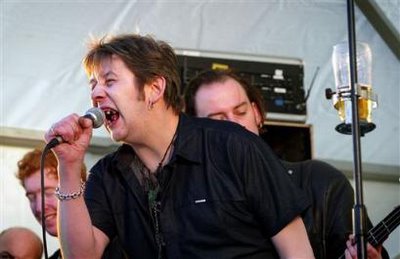
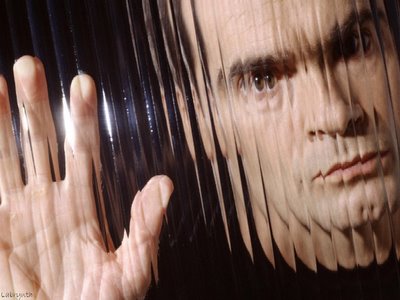 http://www.newsrecord.org
http://www.newsrecord.org